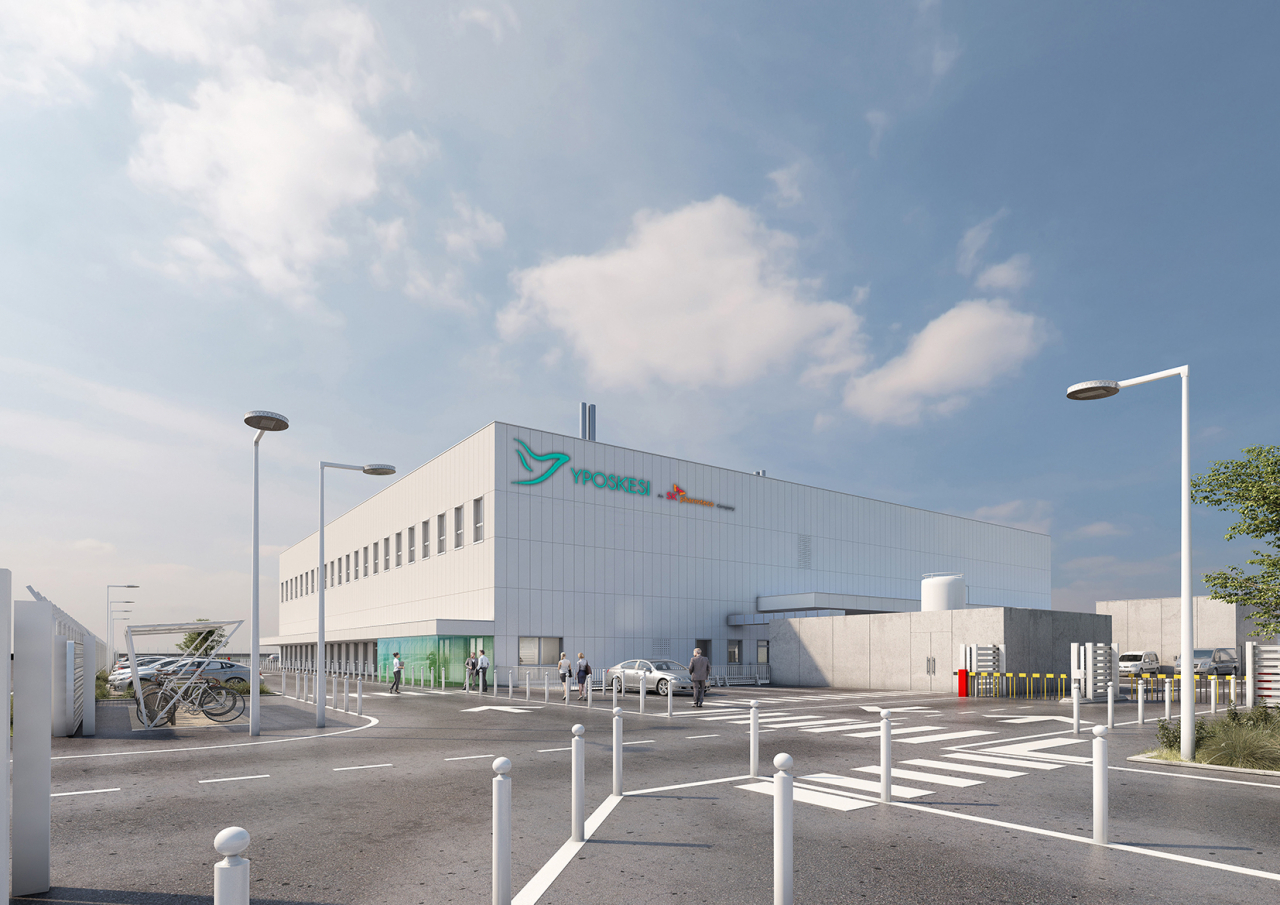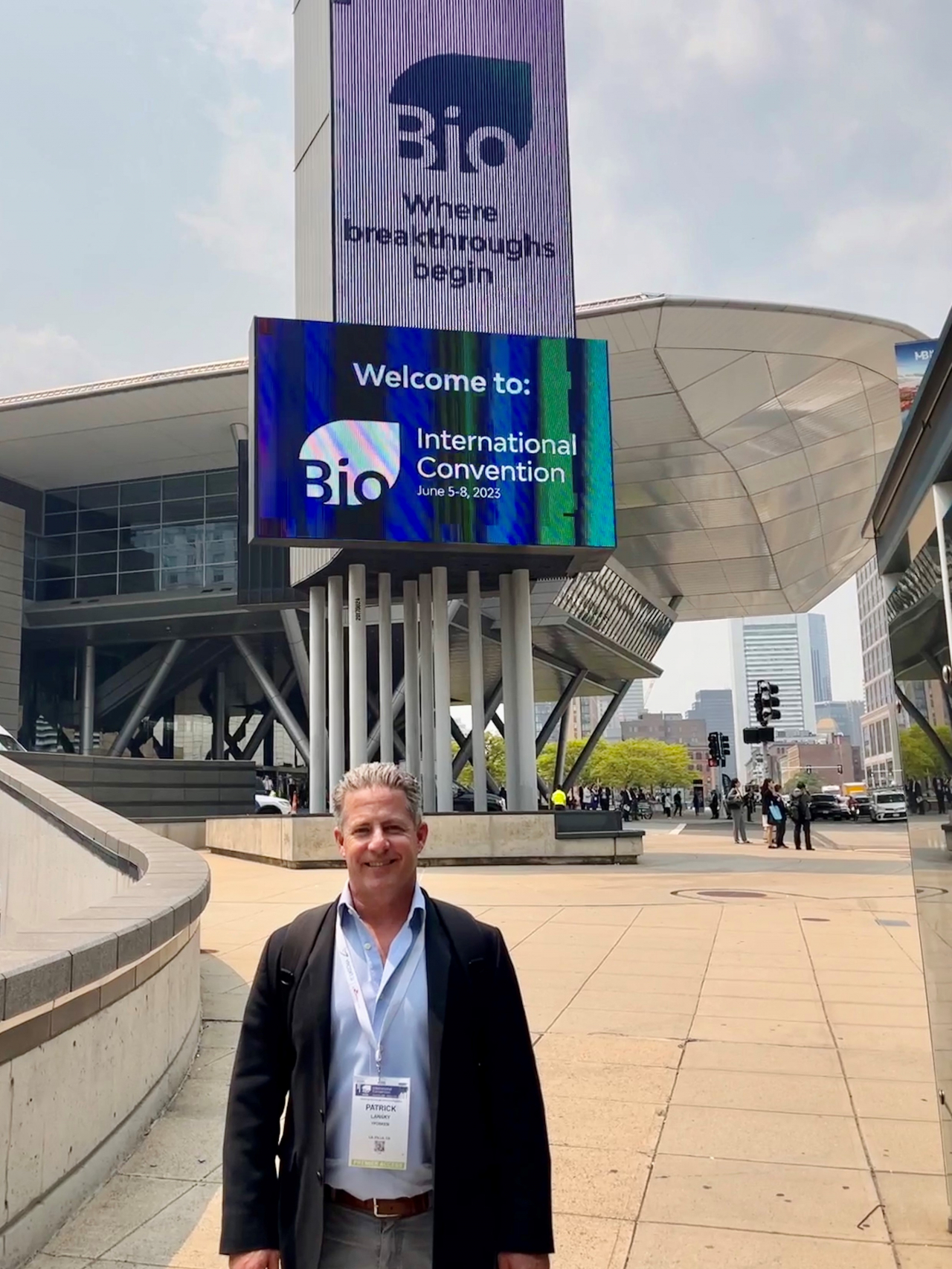 |
A rendering of Yposkesi's new plant located in Corbeil-Essonnes, south of Paris. (Yposkesi) |
BOSTON -- Yposkesi, the French contract development and manufacturing arm of Korean biopharmaceutical firm SK pharmteco, expects that its second plant will be at full capacity as the cell and gene therapy market is rapidly evolving, the firm’s executive said.
The SK’s clinical and commercial viral vector manufacturing arm for cell and gene therapies is seeking to capitalize on the growing cell and gene therapy market with its new manufacturing plant, which is under construction near Paris. SK Inc, the majority equity shareholder of the French CDMO, poured $71 million into the new site.
“Our new facility was designed to be very flexible and adaptable to our customer’s needs … With our current pipeline of programs, we expect this facility will be in high demand and we are very confident it will be running at or near full capacity in 2025,” Patrick Lansky, vice president of US sales and marketing at Yposkesi said during an interview with The Korea Herald on Wednesday while attending the 2023 BIO International Convention, which took place in Boston, Massachusetts June 5-8.
The new site is expected to go online early next year after receiving approval from French regulatory authorities. Upon completion, the new plant will double Yposkesi’s production space in its existing facility to 10,000 square meters, which would become one of the largest advance therapy medicinal products facilities in Europe.
A boom seems to be just around the corner for the cell and gene therapy market after overcoming years that funds had been retreating from biotechnology investments.
“I believe the cell and gene therapy market is about to experience incredible growth over the next several years. The financial markets in the past couple of years have made it difficult for many of these companies to expand their pipelines and focus more on their lead programs,” he said.
“However, the expectation is that at least 10 new cell and gene therapy programs will be approved this year and this should lead to greater investment and overall growth in the sector.”
 |
Patrick Lansky, vice president of US sales and marketing at Yposkesi poses at the Boston Convention and Exhibition Center in Boston, Massachusetts, where the 2023 BIO International Convention took place June 5-8. |
The size of the global cell and gene therapy market was $18.61 billion in 2022 and is projected to hit around $93.78 billion by 2030, growing at a compound annual growth rate of 22.41 percent during the forecast period, 2022 to 2030, according to Precedence Research.
The main customers of the new plant outside of Paris will be those working on therapies that require large amounts of viral vectors, or tools molecular biologists use to deliver genetic material into cells, according to Lansky.
“We expect this will be mainly gene therapy programs to start with. We have several signed programs at the 1,000-liter scale that will move into this facility in 2024,” he said.
As the gene and cell therapy field matures, so does the demand for viral vector manufacturing, in particular for lentivirus vectors -- or LVVs -- and adeno-associated virus -- AAV -- production, two dominant vectors used for gene therapies.
Yposkesi’s lentiviral platform, LentiSure, which was launched in April, will offer cell and gene therapy developers “more consistency” than any other platforms on the market to develop and commercialize their pipelines, according to Patrick Lansky, vice president of US sales and marketing at Yposkesi.
“LentiSure is a robust and scalable platform process that is able to provide a consistent and potent lenti viral vector that companies can use as part of their cell therapy,” he said.
“What makes LentiSure different is the time and resources that went into developing this suspension platform and the consistency that this provides," he added.
LVVs are used to produce cell-based immuno-oncology therapies. Their robustness as a gene delivery system is vital in determining the success of any cell-based cancer treatment.
Founded in 2016 and acquired by SK in 2021, Yposkesi’s earnings account for an insignificant portion of the Korean conglomerate for now. However, the tie-up gives SK an impetus to bolster its global presence in the CDMO market. In January 2022, SK Inc. also committed $350 million in equity financing to the Philadelphia-based Center for Breakthrough Medicines in the effort to build a global end-to-end cell and gene therapy CDMO.
Collaboration with SK and the Center for Breakthrough Medicines offers a unique opportunity to grow our overall business and we have been working with them on several different programs that take advantage of the unique capabilities that each of them are able to offer, according to Lansky.
“We are still in the early stages of working through how to best do this and expect many more collaborations in the future. We are fortunate that our parent company, SK pharmteco, has already been through this and are able to offer excellent guidance on how to move forward,” he said.





![[Herald Interview] How Gopizza got big in India](http://res.heraldm.com/phpwas/restmb_idxmake.php?idx=644&simg=/content/image/2024/11/20/20241120050057_0.jpg)

